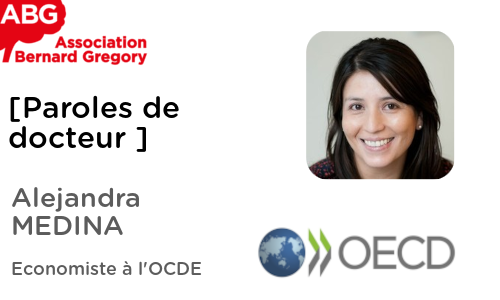

During the last Post-Doctoriales seminar organized by ABG and the City of Paris, Alejandra MEDINA told us about her experience. From her PhD in Finance to the OECD (Organization for Economic Cooperation and Development), she looks back at her career and gives some advice for those interested in working for intergovernmental and international organizations.
Alejandra Medina works as a Financial Economist at the OECD. Originally from Chile, she worked as an Investment Analyst and Corporate Bond Trader at a pension fund in Chile, as well as an Economic Advisor to the Minister of Finance, before completing her PhD program in Finance at the University of British Columbia (Canada).
In 2015, before finishing her PhD thesis, she followed a job opportunity at the OCDE in Paris. Shortly after arriving in Paris, she started working on different international projects in various policy areas related to capital markets. Working in the Directorate for Financial and Enterprise Affairs in the Corporate Governance and Corporate Finance Division, Alejandra advises members and non-members countries on policy issues including:
For those interested in working for an international organisation, Alejandra provides some advice:
Alejandra highlights that the skills and tools that she uses in her current position were gained during her PhD studies, such as :
Her doctoral training helped her acquire expertise in a specific areas that she can now use to advise policy makers on how to create better policies for their country. Studying abroad also helped her working with colleagues from different parts of the world and at the OECD she has learned also how to engage with a variety of international stakeholders.
The opinion presented here represents personal views and should not be reported as representing the official views of the OECD or of its member countries.